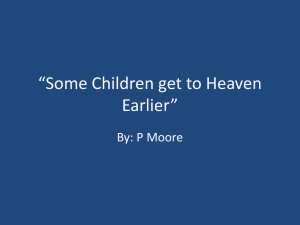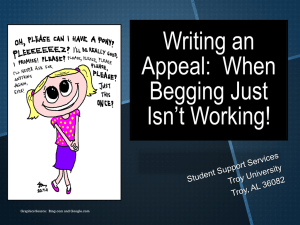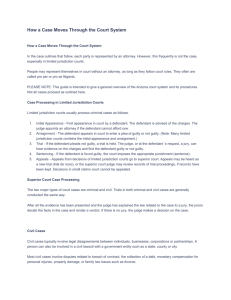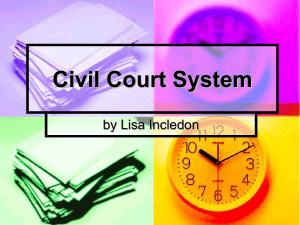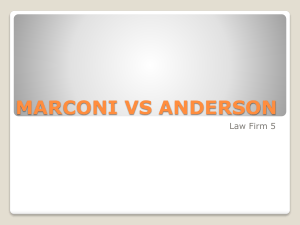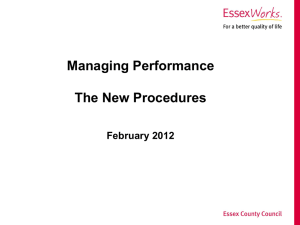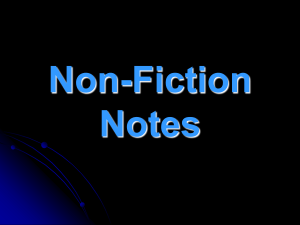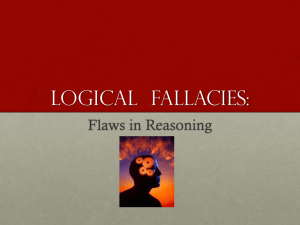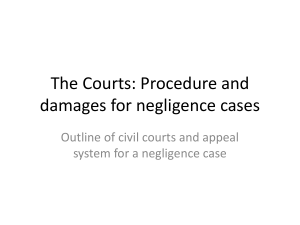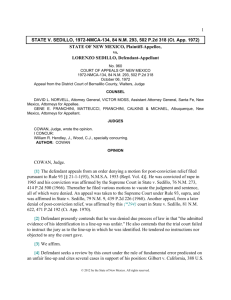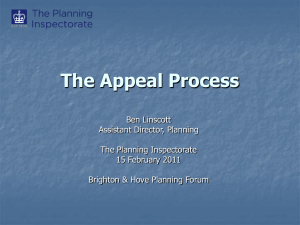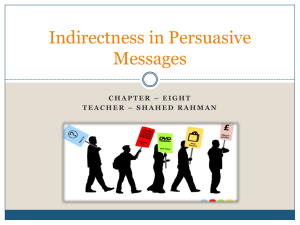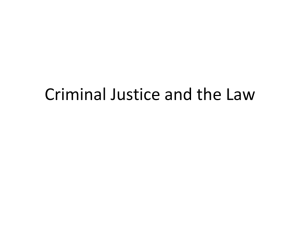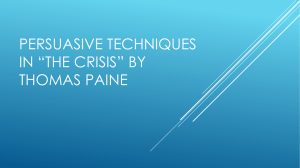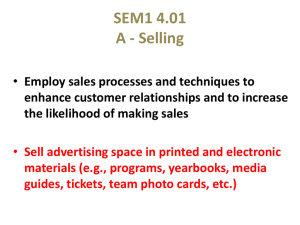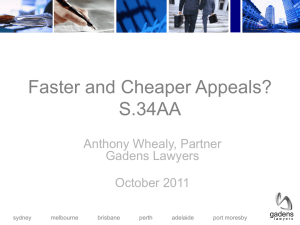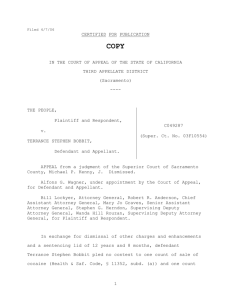APPEALS
advertisement
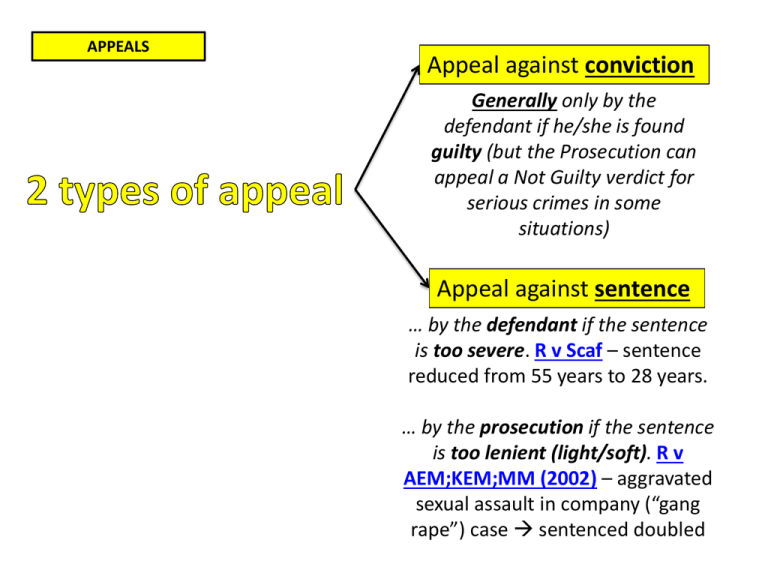
APPEALS Appeal against conviction Generally only by the defendant if he/she is found guilty (but the Prosecution can appeal a Not Guilty verdict for serious crimes in some situations) Appeal against sentence … by the defendant if the sentence is too severe. R v Scaf – sentence reduced from 55 years to 28 years. … by the prosecution if the sentence is too lenient (light/soft). R v AEM;KEM;MM (2002) – aggravated sexual assault in company (“gang rape”) case sentenced doubled APPEALS The defendant has to be given special leave (permission) to appeal to the High Court. There usually has to be an important question of justice or public importance to be able to appeal to the High Court (only 6% of cases that apply are actually allowed to appeal). There usually has to be a question of law (e.g. if evidence was allowed by the judge in the original trial that shouldn’t have been) in order to appeal to the Supreme Court and Court of Criminal Appeal There is an automatic right of appeal (for most cases) from the Local Court to the District Court (the Crimes (Appeal and Review) Act 2001) APPEALS The ‘Double Jeopardy’ rule… This is the old rule that you can’t be tried twice for the same crime. So only the defendant has been able to appeal if he’s found guilty (the Prosecution only had one shot). But since the Crimes (Appeal and Review) Amendment (Double Jeopardy) Act 2006 was passed, a defendant found Not Guilty of a serious crime CAN be put on trial again if there is new evidence (or if there’s evidence of jury tampering). In R v Leung (2009, 2011 and 2013), the defendant was put on trial THREE TIMES for the SAME CRIME. He was found Not Guilty the first two times, but then they eventually got him. APPEALS But this might all change… In 2013, the NSW Law Reform Commission was given the job of investigating our laws dealing with criminal appeals. The government wants all the random little bits of law to be put into a single Act. Their report (Criminal Appeals) probably won’t be released until the end of 2014 (but keep checking the facebook page to see if there are any releases of ‘discussion papers’ or major submissions from the public).





